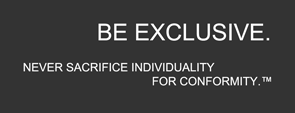The New Beatitudes: In Defense of Bitterness and Righteous Anger.
Hearing the words righteous and anger put on together during sermons always intrigued me.
Righteous Anger was used to describe the radical way Jesus in Matthew 21:12 drove businessmen out of the Temple. In John 2:15 the same episode is described but reveals a new part of the story: Jesus, after fashioning himself a whip of cord, drives out doves, sheep and cattle being sold for sacrifices. He overturned tables. He pours out the coins of money exchangers. He was incensed and lashed out (pun intended) against the greedy businessmen and the religious elites whom he considered perverted god’s temple.
We all know the end of Jesus’ story, he was crucified in a plot with the political intent of snuffing out a social revolution and possible uprising. I heard those sermons say that the anger we feel over injustice is a bit like a mirror of God’s righteousness and goodness and that a holy discontent was a healthy part of a Christian’s walk.
Although now I am more of a skeptic when it comes to the name and nature of the creator/created dynamic, I still view holy books of all religions as valid writings that can potentially help us work together toward the common goal of Peace. I believe that these writings show us that at the core of each human personally as well as societies and cultures there are basic human rights. Basic human needs such as food, water, shelter, health care as well as basic human desires such as growth, community, and charity. And Justice.
Our beliefs in the systems of government, societal interactions and religion so hardwired into us depend on the idea that those in power over our lives are just and righteous, that our best interest is being advocated at all times.
For the majority of minority peoples living in America, this is not now nor has it ever been the case and no longer can this fact be ignored, diminished and forgotten.
In the past few years Native people of the Americas, including those in the Latinx community, African Americans– POC from every group imaginable, differently abled peoples from all backgrounds, poor folks and White allies, Trans/ Queer and Feminist communities have moved closer and closer together, lifting each other’s burdens as we together fight the capitalist patriarchal, supremacist system that oppress us all.
With social media playing a central role in our lives and our social interactions we are constantly connected to each other’s struggles and creatively working together in supporting and advocating for one another.
Thanks to social media and camera phone technologies we can also see the horrors our communities face at the hand of unchecked power and the difference in the way people are treated based on skin color, language spoken, “net worth” and being able to produce the proper documentation. It is little solace that we needed this much proof, and even still, for every Black Lives Matter and Say Her Name hashtag, there is always a misguided, ignorant friend on your timeline sharing bad memes with blatant misinformation and vitriolic commentary.
When you are in a position of privilege and power, your righteous anger, your thirst for justice is so warped, that you might find yourself atop a San Francisco PD car overturned, setting ablaze trash cans. You might find yourself throwing bottles at the police, terrorizing, stabbing and shooting innocent bystanders, burglarizing businesses in front of cameras, on national television and having the luxury of being described as “kids out of control after a baseball game loss” the words “passionate” are exchanged with commentators patronizingly surmising that these kids, these otherwise nice kids, well, they’ve partied too hard.
I read somewhere online that “when you are used to privilege, equality feels like oppression.”
When you are in the opposite end of this power structure, when you are systematically speaking, oppressed, marginalized, victimized and institutionalized in a disproportionately larger scale than the “majority” you also feel that penchant for justice burning deep, swelling inside your stomach. Yet you allow it to get caught up in your throat. You let it go, you comply, you stay on task. Ingrained respectability politics teaches us that we ought to be: homogenous, quiet, compliant. If you find your voice enough to speak up, you are labeled as bitter and disruptive, deserving of whatever violence the state enacts upon our lives as a form of punishment for desiring a little more justice and equality today than we’ve had yesterday.
Bitterness is found in the Bible too, as wrath unchecked, or a person or doctrine that causes people to act presumptuously against their salvation. To use the word bitterness within that context to describe depression rooted in oppression is distasteful at best, violent at worst.
But I think bitterness is far more than that.
When I think of bitterness I think of roots. Roots are not fruit, sweet and attractive, but they are just as essential to plant health. They are patient but always moving forward, growing unapologetically. Some roots are impossible or even deadly to ingest if pulled straight out of the ground, but if you know your roots, you might find that you can turn them into medicine, and although you can almost bet that it will be bitter to the taste, they are healing.
For more information about Yanina Angelini Arismendi visit www.yaninaangelini.com
